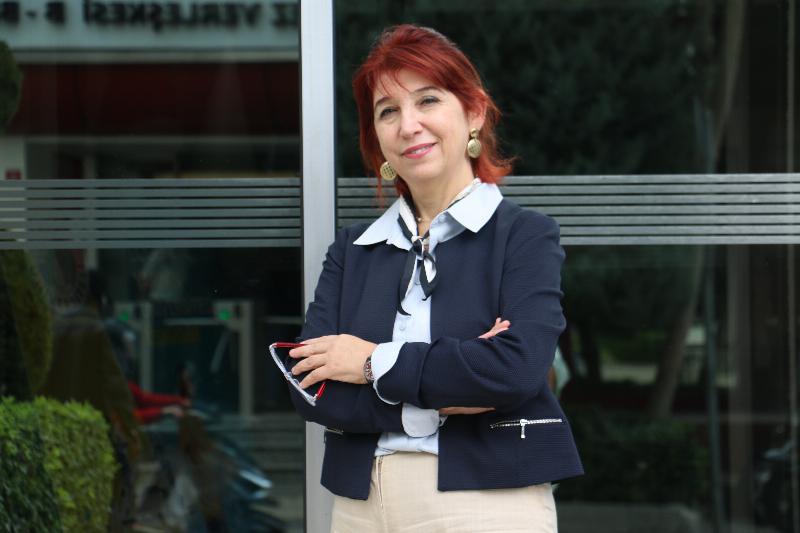How does a natural disaster affect international relations?
Kahramanmaraş earthquakes and played an important role in the rescue of many people by participating in search and rescue efforts. Evaluating the effects of natural disasters such as earthquakes on international relations, political scientist Prof. Havva Kök Arslan stated that such situations may result in a break in frictions for a while, rather than permanently changing the political tendencies between countries. Arslan pointed out that such situations can also be beneficial for the potential cooperation and international peace environment that can provide an atmosphere of cooperation and solidarity.
Üsküdar University Faculty of Humanities and Social Sciences (HSSF) Head of Department of Political Science and International Relations (English) Prof. Havva Kök Arslan made an assessment on the impact of natural disasters such as earthquakes on international relations.
Reminding that, two earthquakes with a magnitude of 7.7 occurred in Kahramanmaraş Pazarcık on February 6, 2023, at 04:17 in the morning and the epicenter of which was Kahramanmaraş Elbistan at 13.24 on the same day, Prof. Havva Kök Arslan said, “In various parts of the region, severe aftershocks followed. In the disaster, in which many of our people lost their lives and were injured, many people were left homeless and psychologically traumatized.”.
Search and rescue teams came from many countries
Noting that the Kahramanmaraş earthquakes are a natural disaster of a magnitude that has not been seen in our country for many years, Prof. Havva Kök Arslan said, “Due to the earthquakes in which thousands of buildings were destroyed, Level 4 alarm was given and rescue teams from many countries were sent to the region.”.
Stating that Adıyaman, Hatay, Kahramanmaraş, Gaziantep, Malatya, Adana, Diyarbakır, Şanlıurfa, Kilis and Osmaniye were the provinces that suffered the most in the earthquake, Prof. Havva Kök Arslan said that after this great disaster, in which civil initiatives such as Ahbap and IHH played an important role in relief efforts, a 90-day state of emergency was declared as of February 8, 2023.
Humanitarian dimension comes to the fore in natural disasters
Noting that natural disasters are situations in which countries suffer great human and material damage, Prof. Havva Kök Arslan said, “In ordinary situations, states sometimes benefit each other through conflict and cooperation, and sometimes they harm each other's interests. However, natural disasters reveal a dimension beyond being a situation that can only be evaluated in terms of interstate interests, and this is the humanitarian dimension of the issue.”.
In the moment of disaster, the pain of disaster is shared
Noting that the first reaction of mentally healthy and ordinary people living anywhere in the world is sadness when a disaster happens to a country, Prof. Havva Kök Arslan said, “Because, a healthy person cannot wish for something extraordinarily bad to happen to another person without any reason in any country. Of course, this view will have an impact on the decisions to be made by states and international organizations, however, partially and for a short time. That is why, in the event of a disaster occurring in a country, nearly every country tends to more or less share the pain of the disaster, at least until the shock of the wound has been overcome.”.
Political tendency between countries cannot change permanently
Expressing that it certainly has a positive result in terms of remembering positive humanitarian feelings between societies, Prof. Havva Kök Arslan said, “As a matter of fact, we can observe that the prevailing feelings in countries such as Greece, where we experience friction from time to time, and especially in their societies, are in the direction of sharing our pain. However, these should not be expected to permanently change the political tendency between countries. Rather, it results in a break in the frictions for a while.”.
It should be considered as a positive opportunity
Political scientist Prof. Havva Kök Arslan said that if pre-disaster crises are not due to structural reasons, the positive atmosphere reflected in the relations in such crises should be considered as an opportunity to change the relationship between countries positively, both at the state level and at the civil society level.
An atmosphere of cooperation and solidarity should contribute to an atmosphere of peace
Üsküdar University Faculty of Humanities and Social Sciences Head of Department of Political Science and International Relations (English) Prof. Havva Kök Arslan concluded her remarks as follows:
"While we are affected by the negative aspects of the disaster in these days of conflict in the world and our region, it will be beneficial for us to turn it to our advantage in a way that contributes to the potential cooperation and international peace environment that the atmosphere of cooperation and solidarity can provide.".
Üsküdar News Agency (ÜNA)
